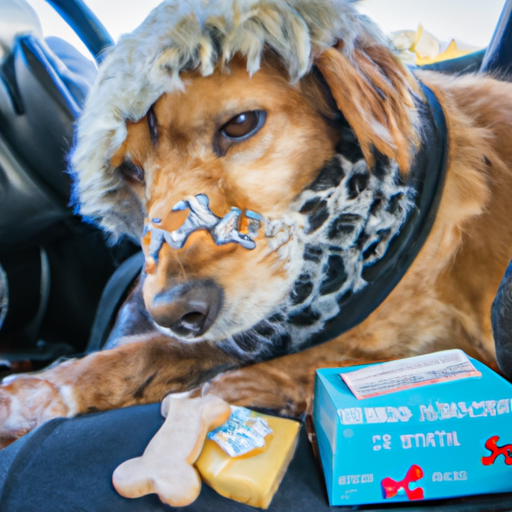Understanding Your Dog’s Car Sickness
You’ve probably noticed your dog’s excitement when you grab the leash for a walk, but when it comes to car rides, their demeanor may drastically change. Just like people, dogs can experience motion sickness during car rides, which can make travel stressful for both of you. Understanding car sickness in dogs is the first step towards helping your furry friend enjoy the ride.
Car sickness in dogs is primarily a result of:
- Immaturity: Puppies’ vestibular system, which helps control balance, isn’t fully developed and thus they are more prone to motion sickness.
- Negative association: If your dog has experienced car sickness before, they may associate the car with unpleasant feelings.
- Anxiety: Dogs can become anxious due to the unfamiliar motion and sounds of a car ride.
Identifying Signs of Car Sickness in Dogs
Before you can help your dog, you need to be certain that what they’re experiencing is indeed car sickness. The symptoms can be both physical and behavioral.
Here are some signs to look out for:
- Excessive drooling
- Whining or pacing
- Vomiting or diarrhea
- Lethargy or inactivity
- Anxiety or fearfulness
Once you’ve identified these signs, it’s best to consult with your vet to rule out any other health issues.
Natural Remedies for Car Sickness
If your vet confirms that your furry friend is indeed suffering from car sickness, there are several natural remedies you can try:
- Ginger: Just as it helps humans with nausea, ginger can also soothe dogs’ stomachs. You can give your dog a small piece of fresh ginger or a ginger capsule before the ride.
- Chamomile: This calming herb can be given in the form of a tea or capsule. It can help reduce anxiety and calm the stomach.
- Acupressure: Certain pressure points can help reduce nausea. You can gently press on the area just below your dog’s knee or on the center of their paw.
| Remedy | Dosage | How to Administer |
|---|---|---|
| Ginger | 1g for every 10 pounds of body weight | Fresh piece or capsule |
| Chamomile | 1 capsule or 1 cup of tea | Capsule or steeped tea |
| Acupressure | N/A | Gentle pressure on designated points |
Prescription Medications
In some cases, natural remedies might not be enough. There are several prescription medications that your vet might recommend:
- Meclizine: An antihistamine that can help prevent nausea and vomiting.
- Dimenhydrinate: Another antihistamine that can help with motion sickness.
- Amitriptyline: A tricyclic antidepressant that can help manage anxiety-related car sickness.
Remember to always consult with your vet before giving your dog any new medication.
Training Your Dog for Car Rides
Sometimes, car sickness can be mitigated or even eliminated with some behavioral training. Here are some steps you can take:
- Start with short, slow rides and gradually increase the duration and speed.
- Make sure your dog has a good view out of the window.
- Try to make the car ride as pleasant as possible. You could bring their favorite toy or blanket.
FAQ
Q: How common is car sickness in dogs?
A: Car sickness is quite common in dogs, especially puppies. However, most dogs outgrow it as they mature.
Q: Can I give my dog human motion sickness medication?
A: While some human medications are safe for dogs, you should always consult with your vet before giving your dog any new medication.
Q: How can I make my dog more comfortable during car rides?
A: Try to make the car ride enjoyable. Bring their favorite toy, keep the car well-ventilated, and make sure they can see out of the window.
Q: Can car sickness in dogs be cured?
A: While some dogs may outgrow car sickness, others might need ongoing management. There are several treatments available, from natural remedies to prescription medications.



